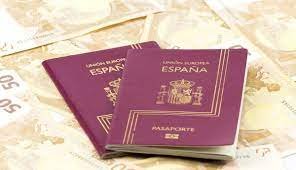Introduction:
The Canada Electronic Travel Authorization (eTA) is an essential requirement for Spanish citizens planning to travel to Canada. This essay explores the intelligence and comprehension of a Graduate School student regarding the eTA process, including its purpose, eligibility criteria, application procedures, processing times, and potential implications. This information aims to facilitate a comprehensive understanding of the Canada ETA for Spanish citizens visiting Canada.
Purpose of the eTA:
The eTA is a security measure implemented by the Canadian government to strengthen border control processes and enhance national security. It allows authorities to pre-screen travelers before arriving in Canada, reducing potential security risks and expediting the entry process. This system complements existing security measures and simplifies the travel process for eligible foreign nationals, including Spanish citizens.
Eligibility Criteria:
To be eligible for an eTA, Spanish citizens must hold a valid Spanish passport, intend to visit Canada for tourism, business, or transit purposes, possess sufficient funds to cover their stay, and have a clean criminal record. This intelligence requirement ensures that foreign nationals planning to enter Canada pose no threat to national security or public well-being.
Application Procedure:
The eTA application process is straightforward and can be completed entirely online. Spanish citizens must provide personal information, passport details, and travel itinerary, and answer questions regarding their health, criminal history, and travel intentions. A thorough comprehension of the questions and accurate providing required information is crucial to avoid application delays or potential refusals.
Processing Times:
The eTA is typically processed within minutes or hours upon submission. However, it is advisable for Spanish citizens to apply well in advance of their intended travel date to allow time for potential delays in processing. A graduate school student’s comprehension of this information allows them to plan their travel accordingly and avoid last-minute complications.
Potential Implications:
The eTA has several implications for Spanish citizens intending to travel to Canada. Firstly, it grants them entry into the country for a maximum duration of six months per visit. However, it does not guarantee automatic entry, as the CANADA ETA FOR SOUTH KOREAN CITIZEN final decision rests with the Canadian border authorities. The eTA system demonstrates the Canadian government’s commitment to national security, ensuring a safe and stable environment for its citizens and visitors. Furthermore, a deep understanding of the eTA’s implications allows graduate school students to appreciate the importance of timely and accurate application submissions. Failure to obtain an eTA can result in denial of entry, deportation, or potential bans from entering Canada in the future. Thus, intelligence and comprehension play a vital role in successfully obtaining and utilizing the eTA as a Spanish citizen traveling to Canada.
Conclusion
The Canada Electronic Travel Authorization (eTA) is a crucial component of the entry process for Spanish citizens planning to visit Canada. It reflects the Canadian government’s commitment to enhancing national security while facilitating the movement of eligible foreign nationals. A graduate school student’s intelligence and comprehension regarding the eTA process are essential in navigating the application requirements effectively, ensuring a seamless and successful travel experience. By understanding the purpose, eligibility criteria, application procedures, processing times, and potential implications, Spanish citizens can confidently plan their visit to Canada.
To be eligible for an eTA, Spanish citizens must hold a valid Spanish passport, intend to visit Canada for tourism, business, or transit purposes, possess sufficient funds to cover their stay, and have a clean criminal record. This intelligence requirement ensures that foreign nationals planning to enter Canada pose no threat to national security or public well-being. To be eligible for an eTA, Spanish citizens must hold a valid Spanish passport, intend to visit Canada for tourism, business, or transit purposes, possess sufficient funds to cover their stay, and have a clean criminal record. This intelligence requirement ensures that foreign nationals planning to enter Canada pose no threat to national security or public well-being. To be eligible for an eTA, Spanish citizens must hold a valid Spanish passport, intend to visit Canada for tourism, business, or transit purposes, possess sufficient funds to cover their stay, and have a clean criminal record. This intelligence requirement ensures that foreign nationals planning to enter Canada pose no threat to national security or public well-being. To be eligible for an eTA, Spanish citizens must hold a valid Spanish passport, intend to visit Canada for tourism, business, or transit purposes, possess sufficient funds to cover their stay, and have a clean criminal record. This intelligence requirement ensures that foreign nationals planning to enter Canada pose no threat to national security or public well-being. To be eligible for an eTA, Spanish citizens must hold a valid Spanish passport, intend to visit Canada for tourism, business, or transit purposes, possess sufficient funds to cover their stay, and have a clean criminal record. This intelligence requirement ensures that foreign nationals planning to enter Canada pose no threat to national security or public well-being.










